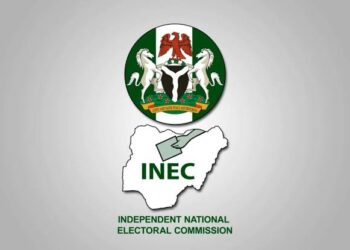Stakeholders in the maritime sector have kicked against the bill for an Act to establish Nigerian Marine Corps to promote maritime security.
The stakeholders voiced their rejection of the bill in Abuja on Monday at a public hearing organised by the House of Representatives Committee on Navy.
Deputy Spokesperson of the House of Representatives, Rep. Philip Agbese (APC-Benue), said that the bill proposes to create a new federal agency tasked with maritime law enforcement.
Agbese said that defence responsibilities were traditionally managed by the Nigerian Navy and other existing agencies, such as the Nigerian Maritime Administration and Safety Agency (NIMASA).
According to Agbese, who represents the Ado/Okpokwu/Ogbadibo Federal Constituency of Benue, if the bill is allowed to proceed, it will lead to duplication of functions.
Speaking on behalf of 66 other House members, Agbese said it was their duty to critically examine proposed legislation to ensure its alignment with the nation’s best interests.
“We have thoroughly examined this bill and its objectives and we assert that the establishment of a Nigerian Marine Corps is both redundant and counterproductive, given the existing roles, mandates, and capacities of the Nigerian Navy and other maritime agencies.
“We, therefore, firmly and unequivocally call for the total defeat of the bill and a recommendation for its immediate withdrawal, while highlighting the compelling need to prioritise efficiency, fiscal responsibility, and coherent maritime governance.
“Acting under the mandate to promote efficient governance and resource management, we hereby call for the total and complete rejection of the bill proposing the establishment of the Nigerian Marine Corps,” Agbese said.
Speaking on behalf of the Nigerian Police Force, the Staff Officer Marine Section, Supol. Nandom Vongjen said the bill was ill-advised.
Vongjen said that it would result in the proliferation of maritime security outfits and a parallel unit of the armed forces of Nigeria.
“The proposed Nigerian Marine Corps, while well-intentioned, can potentially create more problems than it solves.
“A more prudent approach would be to strengthen existing agencies and optimise their capabilities to ensure effective maritime security.
“By streamlining existing structures and fostering inter-agency cooperation, Nigeria can enhance its maritime security capabilities without incurring unnecessary costs or creating additional bureaucratic hurdles,” he said.
Other stakeholders who spoke against the bill include the Nigerian Navy, NIMASA, Nigerian Shippers Council (NSC), Security Analysts and Research Forum in Africa, and the Centre for Social Justice, Equity and Transparency.
Others are; National President, Nigerian Unemployed Youths Association, Coalition of Civil Society Organisations on Economic Watch and the Executive Director, Centre for Human Rights and Advocacy in Africa Network.
They urged the house to trash the bill during the third reading, describing it as unnecessary for maritime security.
The chairman of the House Committee on Navy, Rep. Yusuf Gadgi (APC- Plateau), assured all stakeholders that due diligence would be done on the bill.
He said the committee is an impartial body and will discharge its functions judiciously, adding that a report will be submitted to the house for a final resolution.





